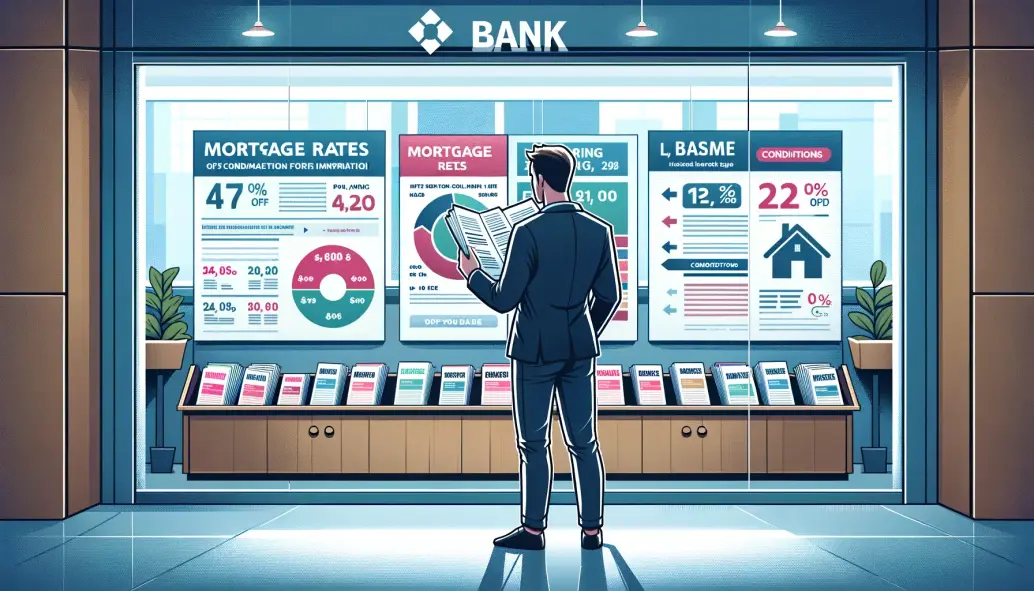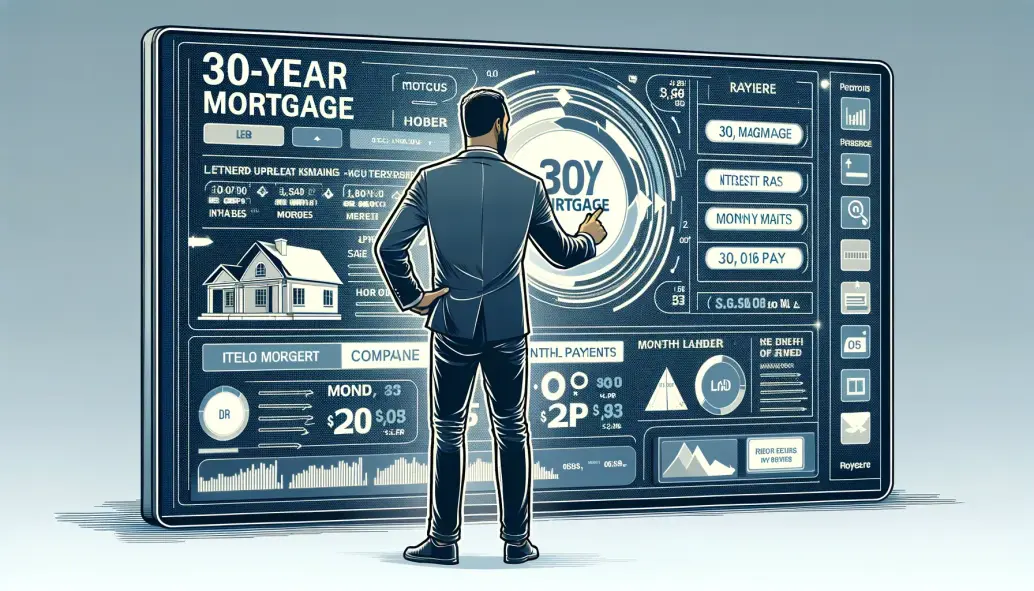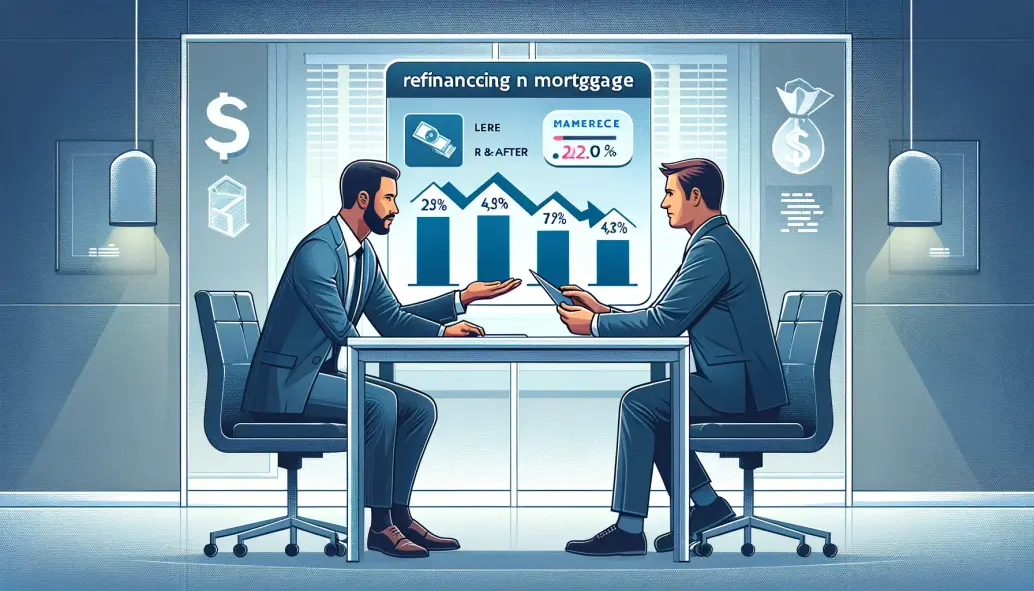Investment Property Mortgage Rates: What You Need to Know
Contents

Are you eyeing an investment property to grow your wealth over the years? Investing in real estate can be an excellent strategy for achieving financial independence, but there’s certainly a lot to consider before you jump in. For instance, as of September 2024, the current 30-year mortgage rate in the US is around 6.21%. Did you know that, typically, rental property mortgage rates are higher by about 0.50–0.75%?
In this article, you’ll learn about current investment property mortgage rates, common types of investment loans, and the prospects of refinancing.
What Factors Affect Investment Mortgage Rates?
What are mortgage rates for investment properties? They’re the interest charges investors pay to finance a property. One of the first things investors wonder is how lenders work out investment property rates.
Factors influencing loan rates for rental properties:
- Credit Score: Lenders assess your credit score. Those with higher scores are more likely to lock in better rate conditions.
- Debt-to-Income (DTI) Ratio: Your DTI ratio, which compares monthly debt payments to income, is also considered. Investors with lower DTI can end up with lower rates.
- Down Payment: Making a down payment of 25% or more can bring down rates, as it reduces the lender’s risk.

Additional factors may include changes to federal funds rate, employment rates, tax law adjustments, and overall market stability.
Types of Investment Loans: Pros/Cons and Rates
There are four main types of investment loans, each with different interest charges and requirements.
Conventional Loans
This is the most common type. Mortgage brokers and reputable financial institutions typically issue such loans. As of September 2024, the average 30-year fixed mortgage rate is 6.31%.
Advantages: You get lower fees and rates compared to other investment property loans, but you’ll need a good credit score.
Disadvantages: A down payment starts at 15–20% of the purchase price, so you’ll need to have a significant amount upfront.
FHA Loans
This is a type of loan backed by the Federal Housing Administration. If you are one of the investors considering a 2–4 unit property, it may be an option for you. The average 30-year FHA mortgage interest rate is 6.43% as of September 2024.
Advantages: A down payment is only around 3.5%, with lower credit score requirements.
Disadvantages: You must live in your investment property for at least one year, which may not work for all investors.

VA Loans
As the name suggests, it is suitable for those who meet specific military service requirements. The average 30-year VA mortgage interest rate is 6.59% as of September 2024.
Advantages: The possibility of securing a 0% down payment if you’re eligible.
Disadvantages: You’re required to live in a property for a year or more.
Hard Money Loans
If you’ve got your sights set on a specific investment and need funding quickly, hard money loans are another option.
Advantages: It’s easy to qualify for, and you get your money fast. Interest rates for hard money loans usually range from 10% to 18%.
Disadvantages: Hard money investment loan rates are steep, and the associated fees can add up quickly.
HELOC
If you have equity in another property, you can consider a home equity loan or line of credit. They allow you to tap into your equity to finance your investment property.
Advantages: The loan is tax-deductible, and investment loan rates can be lower compared to some other types.
Disadvantages: There is a risk of losing your property when you cannot repay the loan.

Compare Investment Home Loan Rates
Finding the best rates might take some patience, but consider it as an investment in itself—one that can pay off down the road.
Many websites offer calculators for comparing loan rates on investment properties. While such tools give you an approximate idea of rates, contacting lenders directly will provide more accurate information.
Until you sign the closing document, you can collect as many loan quotes as you want. Numerous lenders provide the option of free pre-approval, so take advantage of it to get the most accurate rates.
When looking for a mortgage, steer clear of the following:
- Don’t rely solely on ads for the best rates. Advertised rates are often the lowest available for investors who meet all the ideal conditions.
- Avoid jumping at the first offer. You should avoid rushing to accept the first offer at all costs, as you could end up regretting it when you find better rates elsewhere.
- Don’t settle for your current bank out of convenience. While it may seem like an easy solution, you should look beyond your current bank if they don’t offer great rates.
Refinancing Investment Property: Why and How to Do It
Refinancing is a common strategy investors use to lower their investment property loan rates. If you’re wondering whether refinancing makes sense in your situation, here are the key advantages to consider:
- Reduced investment property interest rates compared to the original loan.
- The opportunity to adjust new loan terms when refinancing.
- The option to add more features to your loan.
- Using your equity to finance other investments.
- Switching from a fixed-rate interest loan to a variable one.

Although the benefits typically outweigh the drawbacks, there are a few downsides. Refinancing comes with fees, so make sure you know what they’ll be beforehand. You’ll also need to have a good credit score and provide solid proof of income.
The process of refinancing an investment property is fairly complex.
Document Preparation
For getting investment property refinance rates, you are expected to provide:
- Tax returns from the past 2 years.
- W-2 forms.
- Relevant lease agreements for the investment property.
- Rental income information.
Building Equity
Another essential part is that you need some equity built up. In many cases, you’ll need 25% equity in the property to qualify for refinancing.
Correct DTI Ratio
Before applying for refinancing, take a look at your debt-to-income ratio. It should be 45% or less if you want to move forward with the refinancing.
Property Appraisal
Your investment property must be professionally evaluated for its value and income potential. This ensures the property has enough equity for refinancing.

Closing Costs
Refinancing comes with closing costs, which can vary based on the location of the property and loan amount. Make sure you find out what they’ll be in advance; the average is around $5,000.
Final Thoughts
Investment property mortgage rates today can vary significantly depending on the chosen loan type, credit score, lender, and other factors. It’s crucial to carefully weigh your options, as the only way to lower them in the future is through refinancing. Also, the process of refinancing can be costly. That’s why we recommend comparing several offers before making your decision.




